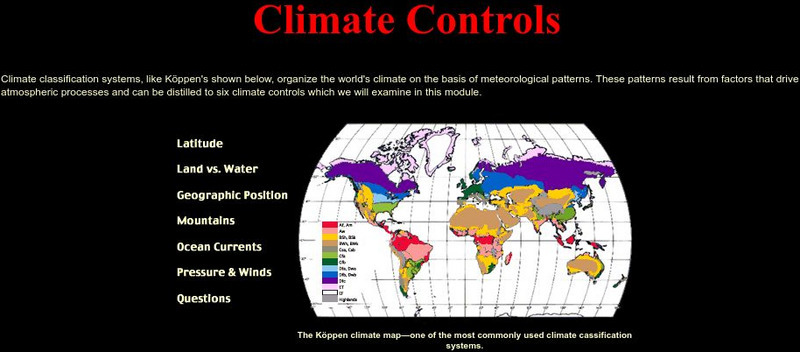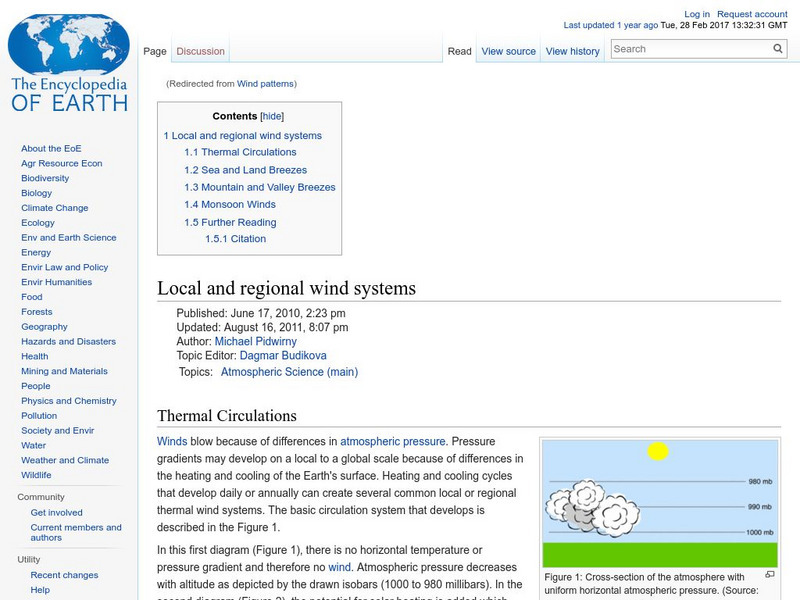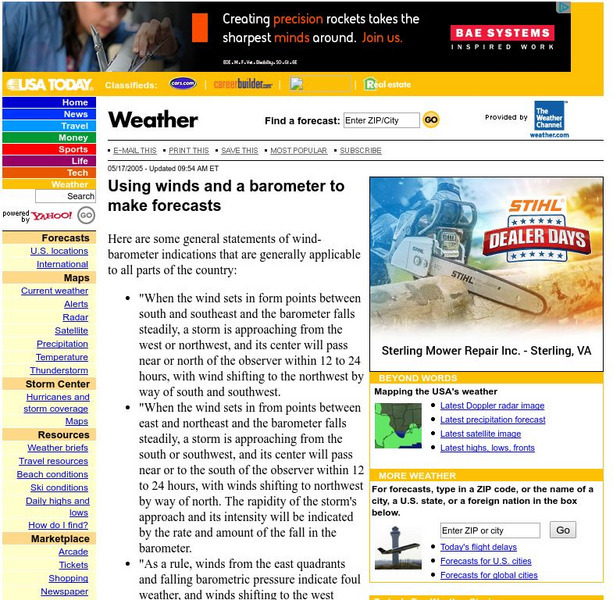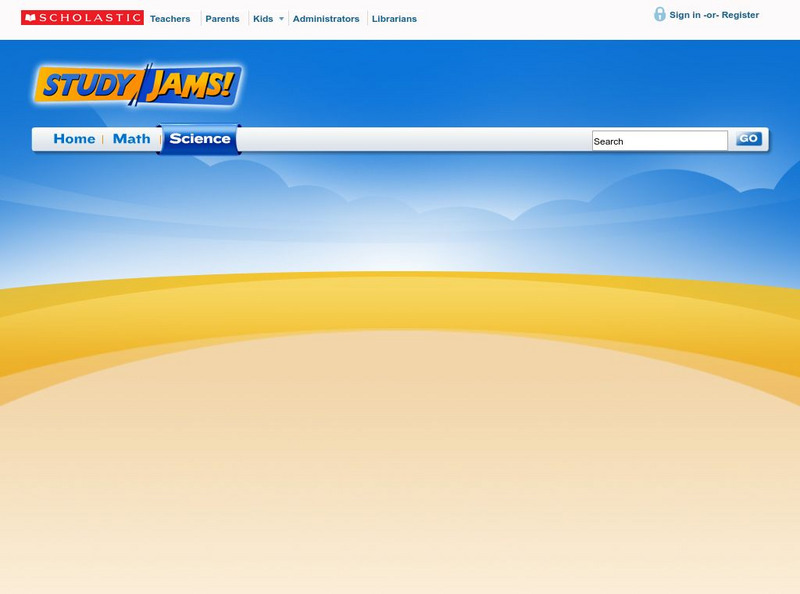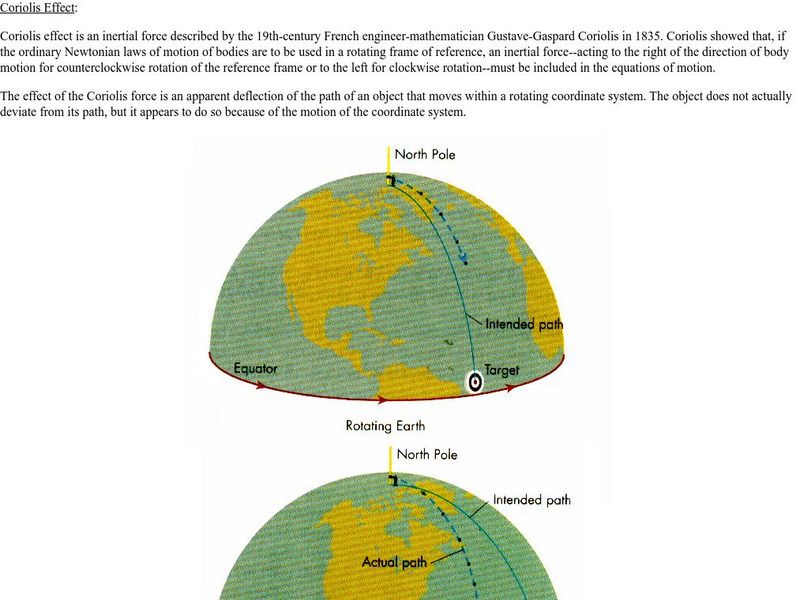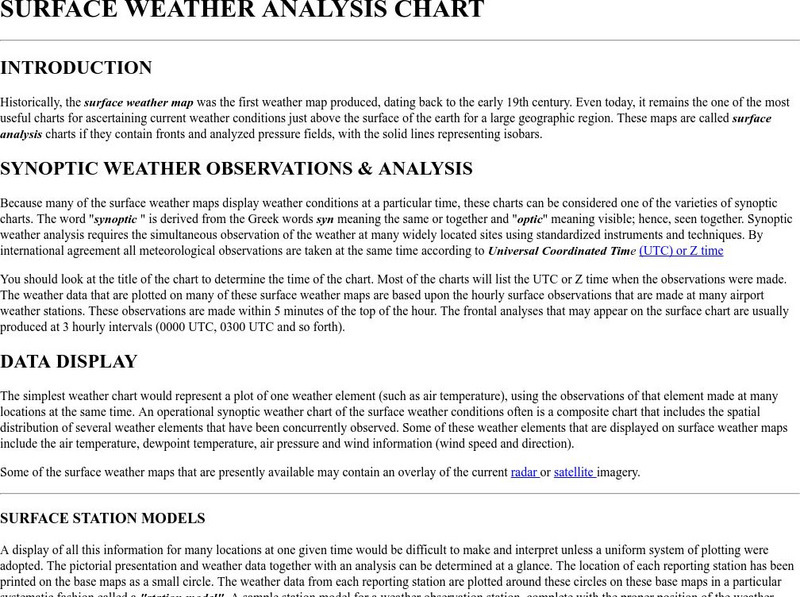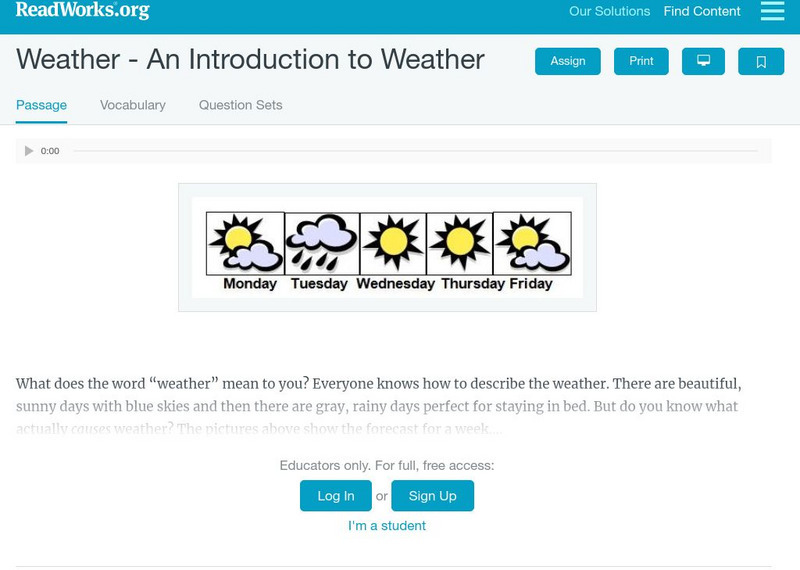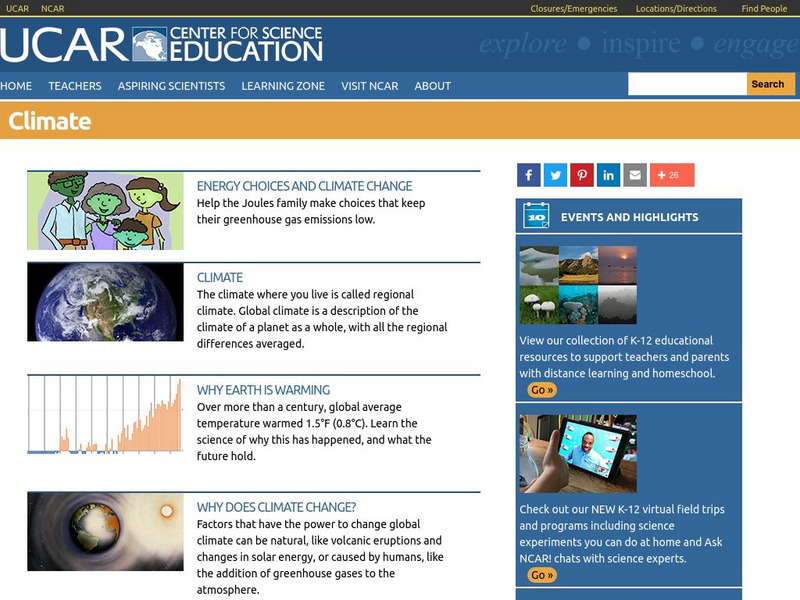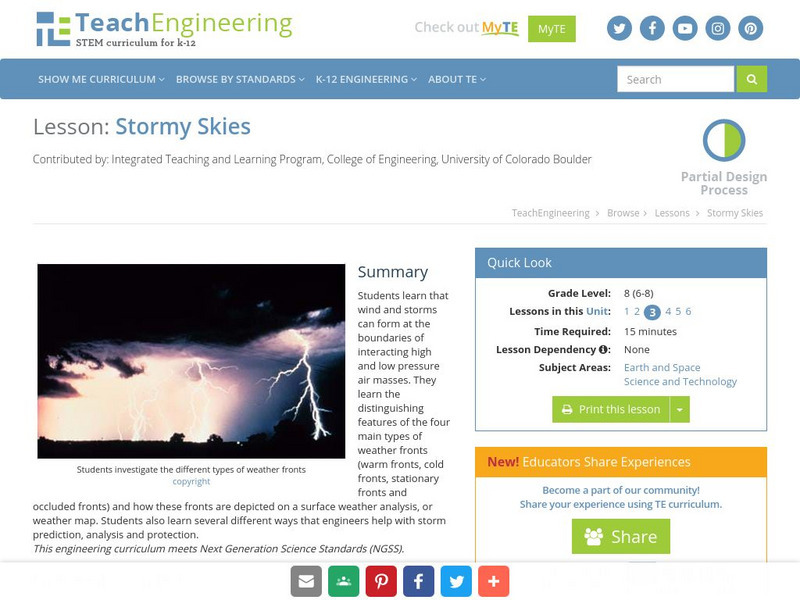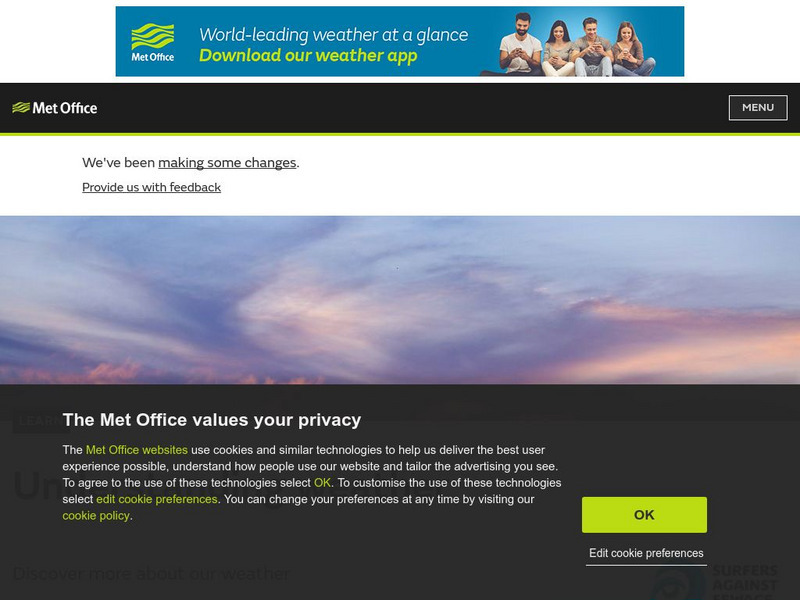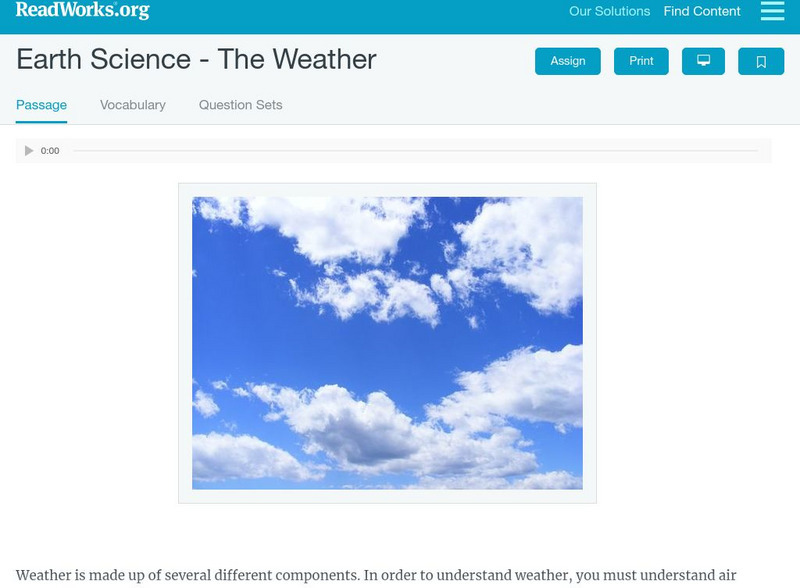Hi, what do you want to do?
Other
Usc: Climate Controls
An effective presentation of six main climate controls: latitude, land vs. water, geographic position, altitude, currents, pressure and winds.
E-learning for Kids
E Learning for Kids: Antarctica: Penguins: What Are the Different Aspects of the Weather?
For this lesson, students learn about the different types of weather and the factors that impact them, including air pressure, humidity, sun and wind.
Encyclopedia of Earth
Encyclopedia of Earth: Local and Regional Wind Systems
Read about regional and local wind systems, including information on changes in atmospheric pressure, thermal energy in the atmosphere, sea and land breezes, mountain and valley breezes, and monsoon winds.
USA Today
Usa Today Weather: Using Winds and a Barometer to Make Forecasts
Describes the ways in which wind direction and barometric pressure can be used by the amateur weather forecaster to make predictions about the weather.
Read Works
Read Works: Weather: Air Patterns
[Free Registration/Login Required] An informational text about wind patterns and how they relate to clouds, storms, and lightning. A question sheet is available to help students build skills in reading comprehension.
Scholastic
Scholastic: Study Jams! Science: Weather & Climate
A video and a short multiple-choice quiz on the topic of weather and climate, and the difference between them.
Other
Digital Library for Earth System Education: Teaching Box: Essentials of Weather
A suite of lessons focusing on the basic elements of climate and weather. Inquiry-based exploration of extreme weather events and the factors of weather including clouds, wind, air pressure, temperature, and the water cycle.
American Museum of Natural History
American Museum of Natural History: O Logy: Stuff to Do: Make a Weather Station
Make a wind vane, rain gauge, and barometer and learn how to measure wind direction, rainfall, and air pressure.
University of Oregon
University of Oregon: Coriolis Effect
This site from the University of Oregon provides a great explanation of the Coriolis Effect and then gives several chart type examples to help the understanding of it.
Discovery Education
Discovery Education: Weather Maps
This site provides a lesson plan in which groups of students will each investigate a different type of weather map use for weather forecasting. Also includes discussion questions, extension ideas, and links to additional sites for more...
TeachEngineering
Teach Engineering: Weather Basics
Students are introduced to the basics of the Earth's weather. Concepts include fundamental causes of common weather phenomena such as temperature changes, wind, clouds, rain and snow. The different factors that affect the weather and the...
University of Wisconsin
Atmospheric and Oceanic Sciences: Surface Weather Analysis
Explains the use of synoptic weather analysis in preparing weather maps and forecasting. Discusses the use of symbols as well.
Read Works
Read Works: Weather : An Introduction to Weather
[Free Registration/Login Required] Requires free membership.T his passage is a stand-alone curricular piece that reinforces essential reading skills and strategies and establishes scaffolding for vocabulary learning. It contains...
University Corporation for Atmospheric Research
Ucar: Introduction to Climate
A detailed overview of the Earth's climate, with explanations about the difference between weather and climate, dendrochronology, palynology, and how Earth's climate has changed over time. All information is reinforced through pictures,...
TeachEngineering
Teach Engineering: Stormy Skies
Young scholars learn that wind and storms can form at the boundaries of interacting high and low pressure air masses. They learn the distinguishing features of the four main types of weather fronts (warm fronts, cold fronts, stationary...
Read Works
Read Works: Earth Science the Weather
[Free Registration/Login Required] An informational text about weather. A question sheet is available to help students build skills in reading comprehension.





